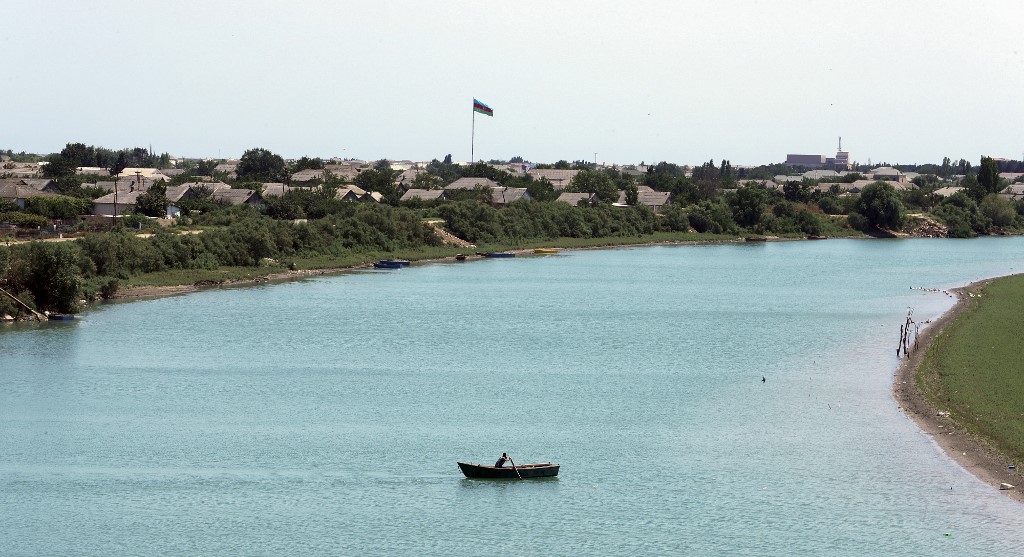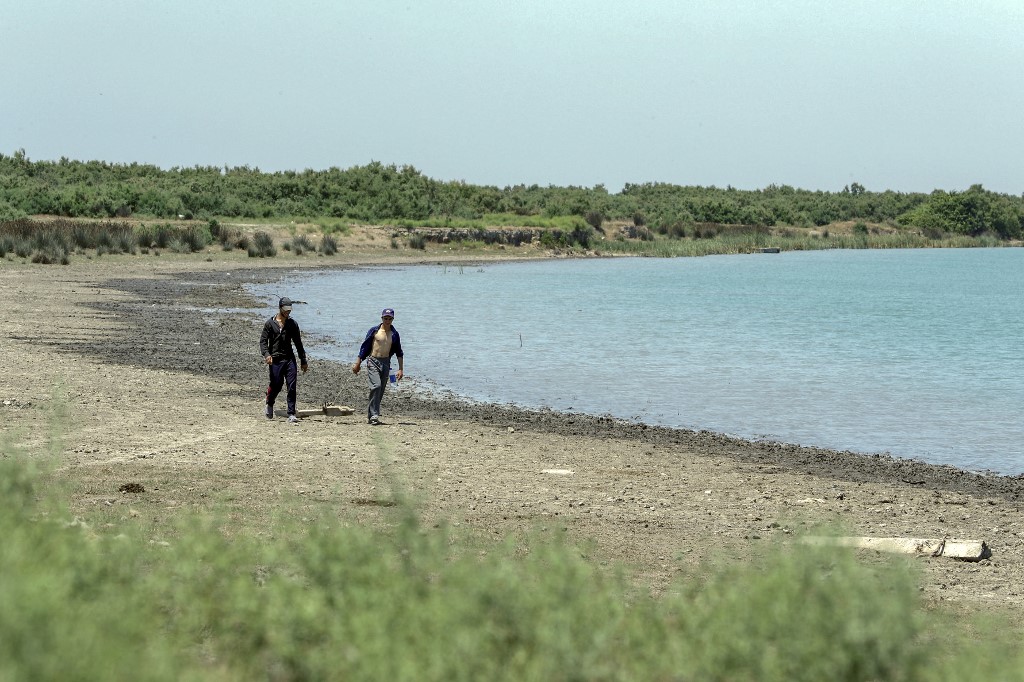
by Isgender GANBAROV with Emil GULIYEV in Baku
Agence France-Presse
BANKA, Azerbaijan (AFP) — The village of Banka in Azerbaijan should have plentiful supplies of water as it lies beside one of the country’s mightiest rivers, the Kura.
But the river has shallowed dramatically this summer and has become contaminated with salty seawater, in what experts warn is an unfolding ecological disaster.
“Our animals are dying. We don’t get water in time,” said farmer Maryam Hasanova, as she waited for a truck to deliver water.
Residents in two southern regions have suffered acute water shortages for months, and people like Hasanova — who have smallholdings with crops and cattle — have been particularly affected.
Wide expanses of cracked grey silt can be seen above the waterline of the river near the village.
“The drop in water levels in the Kura this summer is unprecedented,” reaching nearly two metres (six feet) in some regions, said the director of the Baku’s Institute of Geology, Ramiz Mammadov.
“Kura’s riverbed is a frightening sight,” he said.
“This is an ecological disaster”, said Telman Zeynalov, the head of Azerbaijan’s Centre for Ecological Forecasting.
‘Terrible state’

Originating in northeastern Turkey, the 1,515-kilometre (941-mile) river flows through Georgia and Azerbaijan into the Caspian Sea, playing a major role in the ecosystem of the entire Caucasus region.
Close to the delta where Banka is located, the river’s current has slowed down so much that saltwater from the Caspian is flowing upstream.
“We can’t use it, nor can we use it for animals to drink,” said local resident Famil Akhmedov, a pensioner in his 80s.
“We’re in a terrible state.”
A communal water tank stands in the village street of one-storey houses waiting to be filled by deliveries from a truck.
But Hasanova complained that the amount of water delivered by the authorities was far less than the villagers’ real needs.
Some villagers were filling plastic bottles with murky water directly from the river despite the saltwater contamination.
Residents are angry about the government’s apparent indifference to their plight.
People are “suffering from water shortages and the local authorities are refusing to listen to our complaints,” said one resident, Famil Hasanov.
Unregulated use
Global warming is a factor in the rapidly worsening crisis, geologist Mammadov said, since Azerbaijan has seen a 30-percent decrease in rainfall over the last decade.
“This problem isn’t anything new. We are witnessing similar issues in arid regions around the globe,” he said.
Uncontrolled and unregulated use of water for agriculture is exacerbating the crisis, he added.
“The number of new farms and fish farms along the river is constantly growing, leading to excessive water use,” he said.
“There are water pumps everywhere you look.”
Another factor may be a vast reservoir called Mingachevir dammed off in the river close to the Georgian border and used to power Azerbaijan’s largest hydroelectric plant, said ecologist Zeynalov.
He suggested that more research was needed into its use of water.
Geologist Mammadov said Azerbaijan’s limited water resources can only be enough for everyone if it is used prudently.
In April, the oil-rich country’s authoritarian President Ilham Aliyev issued a decree on the “rational” use of water resources and set up a governmental commission tasked with restoring the Kura’s water levels.
Mammadov said the commission has recently tabled long-overdue guidelines that are essential for addressing the crisis.
“The problem can be resolved if there is political will and if we stop abusing nature,” he said.
© Agence France-Presse







